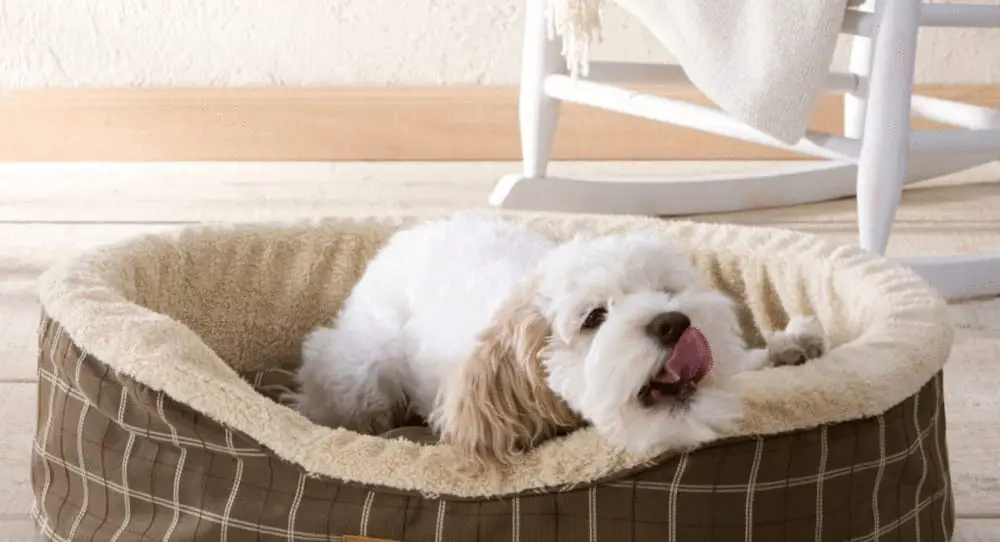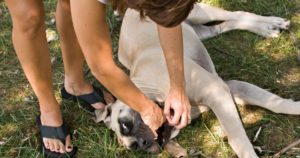Dogs are typically loved like a human in many families; just like with any other family member, you want to ensure they’re taken care of properly. This includes meeting their basic needs of a dog, providing proper nutrition, keeping them physically healthy, and nurturing them emotionally.
In this blog post, we’ll discuss each of these areas in detail, and provide tips on how to ensure that your dog is happy and healthy. If you’re thinking about adding a dog to your family, there are some basic things you need to know to provide proper care for your furry friend.
How To Care for Your Dog’s Basic Needs
To live a happy and healthy life, dogs have basic needs that should be fulfilled. These basic needs include food, water, shelter from the elements (such as heat or cold), exercise, social interaction with other dogs and humans alike-and love!
Dogs also need mental stimulation; this can come from training your dog to learn new tricks like sitting up on command or playing fetch with him or her daily. It’s important not to forget about these basic needs because they’re what keep our pets going strong every day!
Before You Begin To Care For Your Dog:
Before you begin caring for any type of pet, it’s always wise to do some research first to know exactly how much work will go into keeping them around for a long and healthy life. You’ll need basic supplies like food bowls and a leash for walking them outside at least once per day (preferably twice), and toys that are safe for chewing on but not swallowing.
If possible, set up an area in your yard where they can go out to relieve themselves when necessary, but don’t forget about basic hygiene.
Additional items include:
- Dog bed/blanket/towel (if sleeping indoors)
- Collar & ID tags with name address etc., so if lost it can be returned safely home again
- Make sure all vaccinations have been administered regularly throughout their life span – including rabies shots which are mandatory in some states
- Dog crate (optional but recommended) helps with potty training can be used as a safe space when you’re not able to keep an eye on your dog (make sure crate is big enough for your dog to stand up, turn around, and lay down comfortably)
- Carrier bag or harness/leash system for taking car trips
- Grooming supplies such as brushes, shampoo, toothbrushes, etc.
If you already have another pet at home, it’s essential to introduce the new addition slowly, so that there’s no fighting over food or toys. Dogs are pack animals by nature, so they love having another around to play with!

Meeting Your Dog’s Nutritional Needs
Just like humans, dogs need a balanced diet in order to thrive. This means providing them with the right mix of proteins, carbohydrates, fruits and vegetables, as well as essential vitamins and minerals.
Dogs have different nutritional needs depending on their age, weight, breed, and activity level. The best way to ensure that your dog is getting all the nutrients they need is to consult with your veterinarian about what the best food is for them.
Many high-quality dog food brands that cater to specific dietary needs are available at pet stores or online these days , so it shouldn’t be challenging to find something that works well for your furry friend.
In addition to a good quality diet, you can also give your dog treats as a way of rewarding good behavior, or just because you love them! Just make sure that the treats are healthy and don’t contain too many calories.
A word of caution: never give your dog chocolate, grapes, raisins, onions, or anything else that could potentially be harmful to their health. Stick to safe snacks like beef jerky, cheese, or yogurt.
A Space Of Their Own
Dogs need their space, preferably outside in a fenced yard where they can run and play to their heart’s content. However, if you live in an apartment or condo, don’t worry! You can still provide your dog with a comfortable place to call their own by setting up an area in your home where they can rest without being disturbed. This could be anything from a designated spot on the floor next to your bed to an actual weatherproofed doghouse
Physical Maintenance
Dogs need regular exercise to stay healthy and fit. A good walk or game of fetch in the park is ideal, but make sure your dog isn’t over-exerted; otherwise, they could end up with joint problems down the road. In addition to exercise, dogs also need essential grooming, such as brushing their teeth (use dog toothpaste), clipping their nails, and baths when necessary.
This may seem like a lot of work, but it’s not that bad once you get into a routine. The payoff is worth it; a well-groomed dog is always more attractive than one who looks like they’ve been rolling around in the dirt.
Maintaining physical health is not just about exercise, though. It’s also essential to take care of basic medical needs such as:
- Vaccinations
- Flea and tick control
- Heartworm prevention pills monthly (from April through November)
- Dental exams every six months or so (depending on how old your dog is)
- Annual checkups at the vet for overall wellness
- Regular visits with their groomer
Don’t forget that dogs need mental stimulation too. Playing games like fetch or tug-of-war are great ways to keep your dog engaged while spending quality time together.
Teaching basic commands like sit/stay will help establish good behavior patterns and reinforce obedience training over again if needed later on in life. You can even train your puppy to do basic tricks like shake hands or rollover.
Preventing Problems And Taking Care
Dogs are just like humans; they can get sick if they don’t eat right, exercise regularly, and stay healthy. Make sure your dog is up to date on all vaccinations required by law for them to be licensed with their local municipality.

They’ll also need a yearly checkup at the vet so that any health problems can be caught early before they become serious issues requiring expensive surgery or other treatments.
Some basic illnesses include diarrhea (caused by eating something bad, perhaps). Your furry friend may develop ear infections due to water getting trapped inside his ears after swimming. Skin allergies can develop from untreated fleas bites.
These issues can usually be easily treated with medication if caught early enough. Still, more severe conditions like tumors will require extensive surgery and possibly even chemotherapy depending on how aggressive the issue is.
Many people overlook one thing when caring for their dog’s basic needs: grooming. It may seem like an unnecessary expense at first, but it’s essential to keep your pet clean and tidy. Dirty dogs are often more prone to getting sick than those who receive regular baths.
A good brushing every few days will do wonders for their coat as well; make sure you’re using one that’s specifically made for pets because human shampoos tend not to work very well (or at all) on animals.
If your dog has long hair, it might be necessary to take them to a groomer every few months; depending on how much they shed and what kind of lifestyle they lead. Numerous factors could affect when you should schedule an appointment with someone who knows what he/she is doing rather than trying to groom your own dog without proper training or experience.
Taking Care Of Your Sick Dog
If your pup is vomiting or has diarrhea, don’t give him or her anything to eat for at least 12 hours (24 if the illness is severe). This will help the stomach calm down and hopefully stop the sickness from getting worse. After that, you can start slowly reintroducing bland foods like boiled chicken or white rice until they’re feeling better.
If your dog has trouble breathing due to a respiratory infection, take them to the vet as soon as possible! This type of illness can quickly become life-threatening if left untreated. Other severe health conditions requiring immediate veterinary attention include heat stroke, bloat (gastric dilatation-volvulus), and poisoning.
Learning How To Care For Your Dog Is Easy!
Dogs are a lot like children; they require both physical and emotional care in order to thrive. It’s important not only to just feed your dog properly but also how to care for your dog in all areas of his or her life so that he/she has plenty of energy throughout the day. The more active lifestyle, the happier pups will be overall with their lives as well. That usually means fewer problems down the road too if any do arise.






